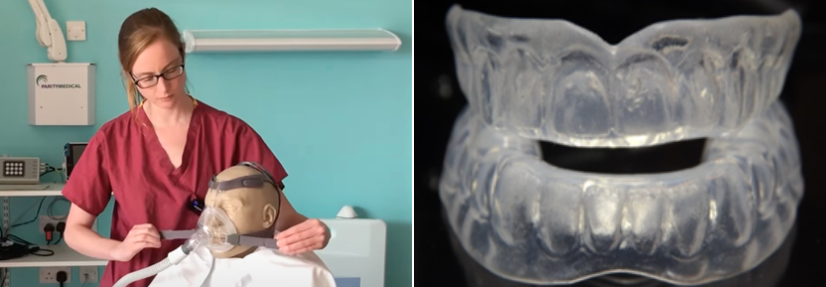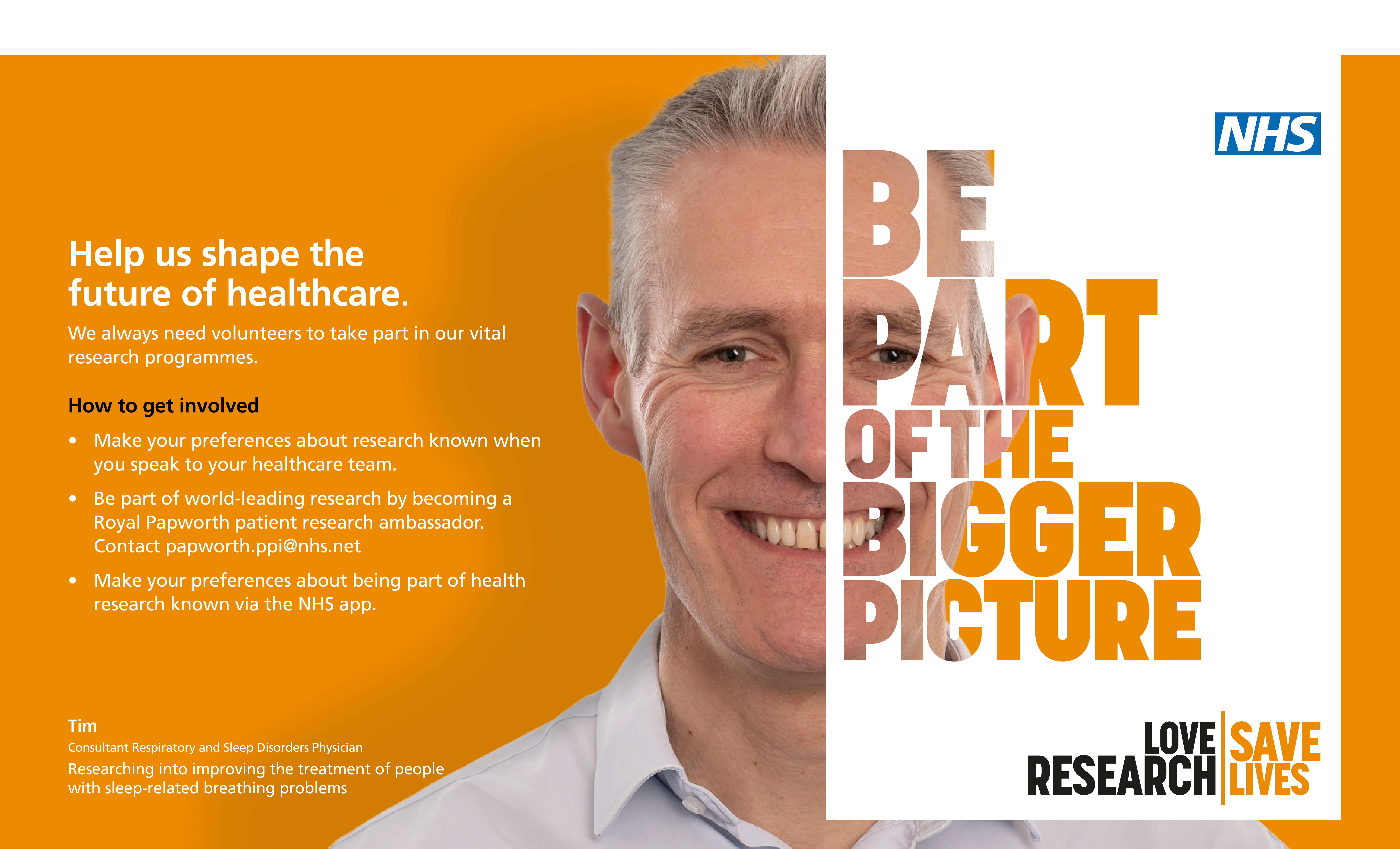New research at Royal Papworth Hospital NHS Foundation Trust is looking into relieving the symptoms of a condition called obstructive sleep apnoea (OSA).
Patients with OSA can experience extreme sleepiness during the day and may even be at increased risk of developing heart disease and other complications.
Some 5% of UK adults aged between 30 and 70 years are thought to suffer from moderate to severe OSA. Due to throat muscles relaxing too much during sleep and blocking the airways, it briefly causes a person to wake up at intervals of up to 30 times or more each hour making it hard for them to reach the deep, restful stages of sleep.
The research at Royal Papworth’s Respiratory Support and Sleep Centre – the UK’s largest sleep unit – is looking into whether combining two standalone treatments will help this patient group.
Funded by the National Institute for Health and Care Research, the research is looking into combining the use of:
- Wearing a face mask connected by a tube to a machine that uses air pressure to keep an individual’s airway open during sleep (known as continuous positive airway pressure, or CPAP)
- A device, like a gum shield, that is used to hold the lower jaw and tongue forward making more space to breathe, called a mandibular advancement device or MAD.

Left - Continuous positive airway pressure, Right - Mandibular Advancement Device (MAD)
For patients with severe OSA, it is essential to set the correct air pressure for them individually in order for CPAP to work effectively. At higher pressures, however, patients may experience significant side effects, such as mask leaks, or a dry mouth, nose and eyes, making the therapy difficult to tolerate.
Dr Tim Quinnell is consultant respiratory and sleep disorders physician at Royal Papworth and lead investigator in this trial:
"Effective treatment for this condition can have a significant impact on an individual’s quality of life, as well as helping to reduce the socioeconomic costs associated with OSA, such as days lost from work through sickness and even things like road accidents caused by sleepiness.
"The question is, what can be added to CPAP to help patients tolerate it better? When combined with MAD, for example, would CPAP work just as well at lower pressures, and so make CPAP easier for patients to tolerate?"
Some 64 patients with severe OSA are being recruited into a clinical trial to answer this question. Patients will be put on either CPAP therapy alone for the first 10 weeks or CPAP combined with a MAD.
After that they will be swapped over to the other treatment. The number of hours that a patient uses CPAP will be monitored remotely as well as the pressure that CPAP needs to deliver both with and without the MAD.
The trial will also include quality of life and symptom questionnaires to gain a clear insight into patient experiences and reactions to the treatments and to gauge whether combining them will be considered too intrusive and / or cause further disruption to their sleep.
Dr Tim added, "Part of the usefulness of a clinical trial like this is not only to find whether a treatment works, but also how best to deliver that treatment. We may get a negative answer, but it's an important question to ask because OSA is a very common condition with significant implications."
Royal Papworth is also collaborating with King’s College Hospital NHS Foundation Trust in London to measure the cost effectiveness of the combined therapy with results expected next year.
This study is just one example of the research taking place across three Cambridgeshire-based hospital trusts involved in the Love Research campaign, designed to raise awareness of our world-leading healthcare research and encourage staff-patient conversations about participating in research.
Discover how you can get involved.

